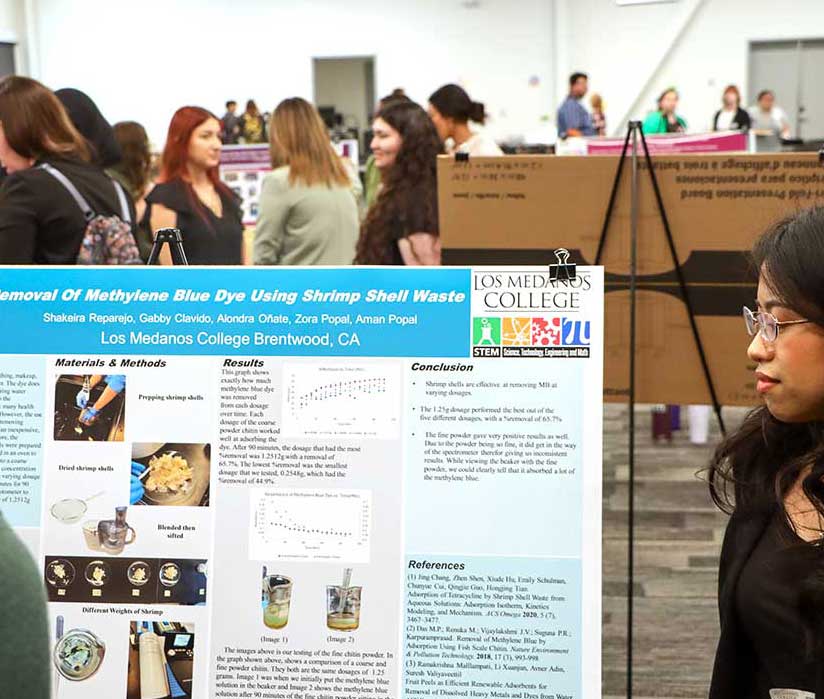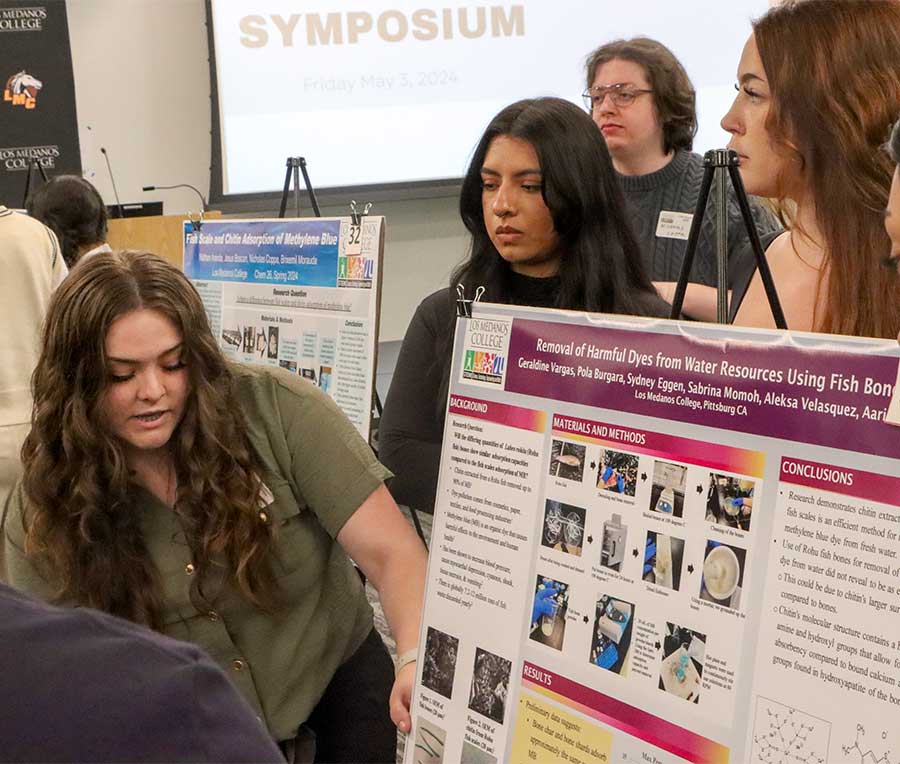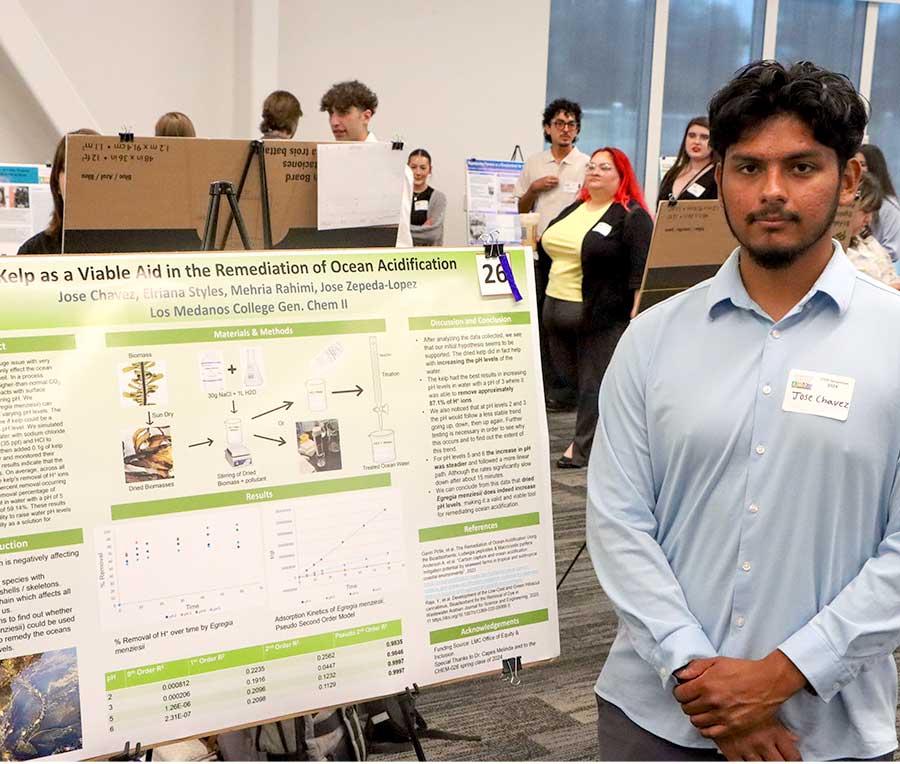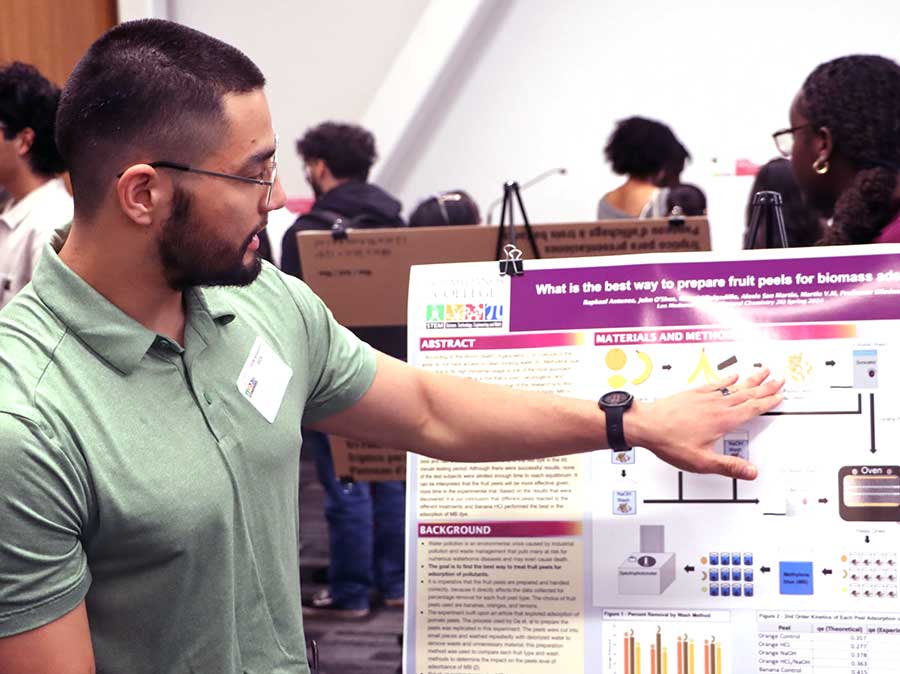Shrimp shells and kelp could clean up water pollutants
Media contact: Juliet V. Casey, jcasey@losmedanos.edu, 925-473-7322
Pittsburg, Calif.: Jose Chavez, an LMC biology major, connected life sciences with chemistry for his research into how dried kelp could help reduce high levels of acidity in the oceans – a symptom of global warming that threatens sea life.
Photos by Owen Troelstrup
During his poster presentation at the 8th Annual STEM Research Symposium at Los Medanos College, Chavez explained how increasing carbon dioxide from human-released emissions reacts with ocean surface water to lower the ocean’s pH, leading to ocean acidification.
“One of the main problems with super high acidity is that it is harmful to pH-sensitive animals, such as soft-shell animals and other animals. It’s a contributing factor to coral reef die-offs,” he said. “My research involved testing whether dried kelp (seaweed) can help increase the pH levels. Kelp has properties that allow it to bond with hydrogen ions that could make ocean conditions less acidic.”
He tested the dried kelp in simulated ocean water with varying pH levels.
“After analyzing the data, we found our initial hypothesis seemed to be supported and the that the dried kelp did in fact help with increasing the pH levels of the water,” Chavez said, noting further research needs to be done to obtain more reliable results and to develop the best steps for a real-world application.
LMC Interim Dean of Instruction, Math and Sciences, said undergraduate students benefit from hands-on research and the experience of presenting their research at the symposium.
“This helps our students become more independent in their science skills and be more competitive in future endeavors, from transferring to a four-year university to getting internships,” Trager said. “Our students come up with their own hypothesis and methods to do their experiments. There is no predetermined outcome. A lot of things fail, but that is real science.”
Zora Popal, a biology major who aims to become a physician assistant, was part of a team that researched the use of shrimp shell waste in the removal of methylene blue dye from wastewater. The dye is used in wastewater treatment but is a pollutant harmful to the ocean’s ecosystem.
Friday’s symposium for Popal was about practicing her presentation skills and communicating her findings to people who are not scientists but for whom the results could matter.
“I really like this format where people can come up and ask questions,” she said. “I can more easily talk and explain what our research is about to individuals and make a connection. It is a lot better than being in front of a large group of people.”
Trager said this year’s symposium featured two presentations from Deer Valley High School students. Next year, Trager hopes the event will include alumni who are working in STEM and producing meaningful research.
About Los Medanos College (LMC): LMC is one of three colleges in the Contra Costa Community College District, serving the East Contra Costa County community. Established in 1974, LMC has earned federal designations as a Minority-Serving and Hispanic-Serving institution. It offers award-winning transfer and career-technical programs, support services, and diverse academic opportunities in an inclusive learning environment. With exceptional educators, innovative curriculum, growing degree and certificate offerings, and state-of-the-art facilities, the college prepares students to succeed in their educational pursuits, in the workforce, and beyond. LMC’s Pittsburg Campus is located on 120 acres bordering Antioch, with an additional education center in Brentwood.




